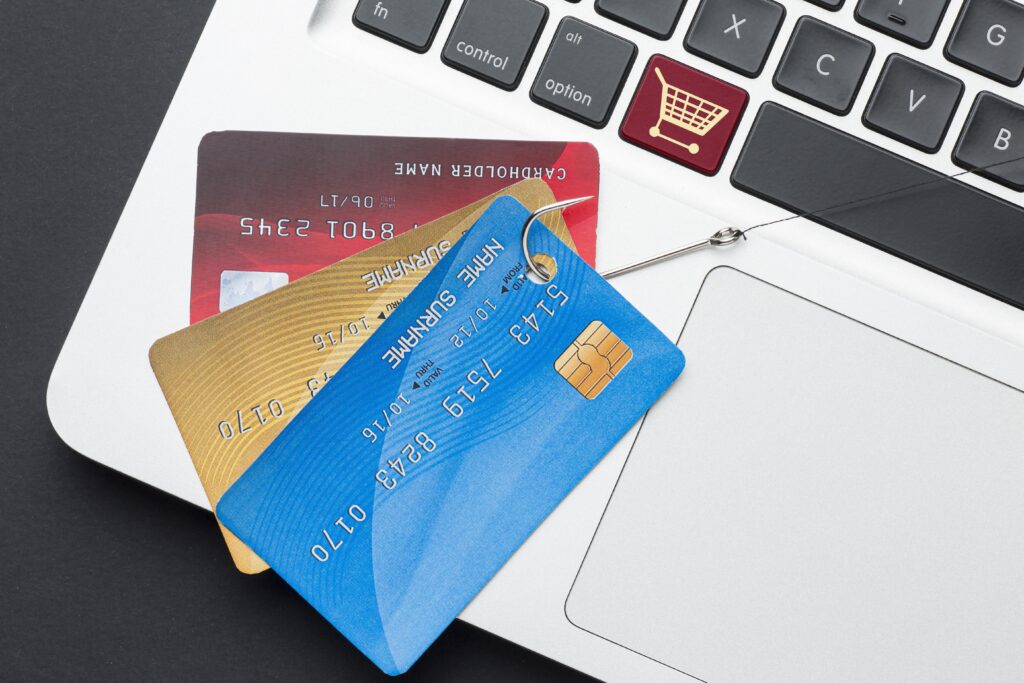With the proliferation of online commerce, credit card data theft has become a common crime. Billions of compromised data, such as these data, passwords, and bank accounts, are bought and sold on the Dark Web, and it is estimated that up to 24 billion illegally leaked data circulate there.
Theft of credit card data in non-face-to-face transactions
In recent years, EMV systems have been implemented to prevent the physical cloning of credit cards. EMV is a payment method based on a technical standard for smart payment cards, payment terminals, and ATMs that can accept them. EMV stands for “Europay, Mastercard, and Visa,” the three companies that created the standard.
That’s why credit card vulnerabilities are more common during card-not-present (CNP) transactions.
Most common ways to execute the theft of credit card data.
Cybercriminals use the evolution of technology to sophisticate their attacks and execute credit card data theft in online transactions.
Phishing
Phishing is a scam in which a cybercriminal impersonates a legitimate entity (e.g., a bank, e-commerce provider, or technology company) to trick a user into entering personal data or downloading malware without realizing it.
Web Skimming
This is malicious code that is installed on e-commerce site payment pages. The code is invisible to the user and can steal compromised bank account data.
Free public WiFi Network
Cybercriminals can access a network to steal third-party credit card details as the cardholder enters them. These networks are usually free public Wi-Fi hotspots.
Data Leak
There have been leaks of compromised data from companies that have suffered an attack on database systems. This method of obtaining data is more cost-effective from the criminals’ perspective, as they gain access to a large amount of data through an attack.
Qondar helps you protect your credit card data
Qondar Personal Threat Watchbots is the cyber surveillance platform developed by Enthec for the online protection of people. Among many other capabilities, Qondar automatically and continuously monitors your credit card data on the Web, Dark Web and Deep Web to detect any leaks and fraudulent online use. In addition, Qondar issues alarms in real time, in order to cancel or minimize the negative impact of the filtration of said data. If you want more information on how Qondar can help you control the fraudulent use of your credit cards, contact us.



